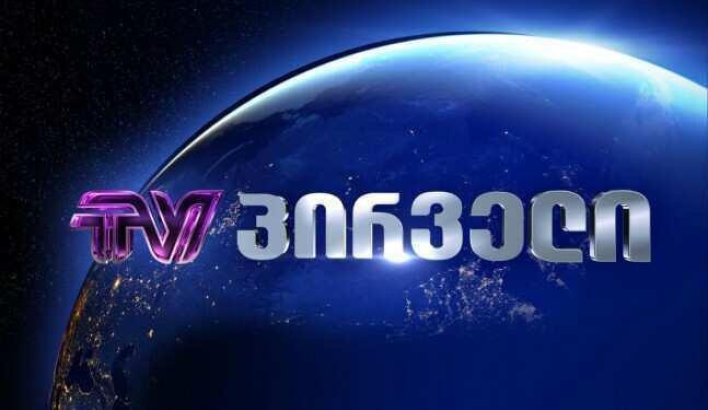
GDI is responding to the March 9, 2021 Tbilisi City Court ruling that has authorized an investigation and the seizure of items transferred to “TV Pirveli” by a confidential source and has granted the prosecutor's office the use of coercive measures proportionate to the possible dispute. We believe that the recording released by “TV Pirveli” has made a significant contribution to a legitimate public discourse that is essential to the society, is protected by freedom of speech and expression, and prosecutors' actions and court ruling undermine the essence of the media as a watchdog of democracy and its free operation.
On March 6, 2021, an audio recording that unequivocally indicates that young people, including minors, were persecuted and threatened because of their opinions expressed in various ways on the social network, was broadcasted on “TV Pirveli”. Prior to establishing the authenticity of the recording, which is the responsibility of the prosecution, that the prosecution can do without endangering the privilege of protecting the media source, it must be said that the content of the recording itself contains several signs of crime.
One of the participants of the disseminated recording may be the acting Prime Minister, who is subject to not only the legal but also to the political responsibility. The recording may also feature other public or acting high-ranking officials and an information dissemination about them plays an important role in legitimizing public debate.
GDI considers that the court ruling on the investigation/seizure of “TV Pirveli” is contrary to Georgian law, the Constitution and the European Convention on Human Rights. The ruling was issued in violation of the requirements of procedural law - it does not indicate the venue of the seizure, it does not provide for the minimum examination on whether the recoverable items are actually stored at the location of the media and so on.
According to Article 17 of the Constitution of Georgia, "Everyone shall be free to receive and disseminate information," and "Mass media shall be free."
According to the Law of Georgia on Freedom of Speech and Expression professional secret entails journalists’ “information of professional value, which became known to a person under the condition of privacy protection in relation to carrying out his/her professional duties and the disclosure of which may damage the person’s professional reputation“.
According to the Article 11 of the above stated law, “The sources of professional secrets shall be protected by an absolute privilege [An absolute and an unconditional waiver of a person from the liability provided by law], and nobody shall have the right to require disclosure of the source.”
Furthermore, according to the Criminal Procedure Code of Georgia:[1] "a journalist shall not be obliged to be interrogated as a witnesses, and shall not be expected to transfer an item, document, substance or other object that contains information essential to the case with regard to the information obtained in the course of his/her professional activities.”
According to the case law of the European Court of Human Rights, „Protection of journalistic sources is one of the basic conditions for press freedom... Without such protection, sources may be deterred from assisting the press in informing the public on matters of public interest. As a result the vital public watchdog role of the press may be undermined and the ability of the press to provide accurate and reliable information may be adversely affected.“[2]
A similar legal problem was addressed by the European Court of Human Rights in the case of “Roemen and Schmit v. Luxembourg”. The court found that searching the journalist's home and workplace, on the grounds of conducting an investigation of a possible crime, was in violation of Article 10 of the Convention. According to the court, “the issue discussed in the article was of public interest, which is why the interference with the journalist's rights could not be compatible with Article 10 of the Convention.”
GDI considers that in the context of the motion filed by the prosecutor's office to investigate “TV Pirveli”, the court should first determine: Was the information disseminated by the audio recordings protected by freedom of expression? Whether the recording made a significant contribution to the legitimate public discourse. Additionally, the court had to consider to what extent its decision would jeopardize the essence of media and the privilege of protecting the media source. As it is clear that private telephone dialogue between public figures makes a significant contribution to a legitimate public discussion, there is no legal basis for disclosing its source and arguments for the protection of personal communication cannot be used to justify its restriction.
In view of the above, GDI calls on the authorities:
The Prosecutor's Office should refrain from enforcing any unreasonable and illegal ruling of the Tbilisi City Court, which may pose even a slightest threat to the privilege of protecting the confidential source of the media;
In the event of an appeal against the ruling, the Court of Appeal should not refuse to administer justice on the basis of the formal arguments and should deliberate on the formality and substantive legality of the decision made by the Court of First Instance while paying particular attention to the essence of the media for the democratic society;
The government should act in accordance with the high standard of legal protection of media outlets guaranteed by the Constitution of Georgia and international acts and should refrain from actions that undermine the essence of the media and hinder its free operation.
[1] Criminal Procedure Code of Georgia ”, Article 50.1 Subparagraph "t"
[2] Goodwin v. the United Kingdom, judgment of 27 March 1996, § 39
